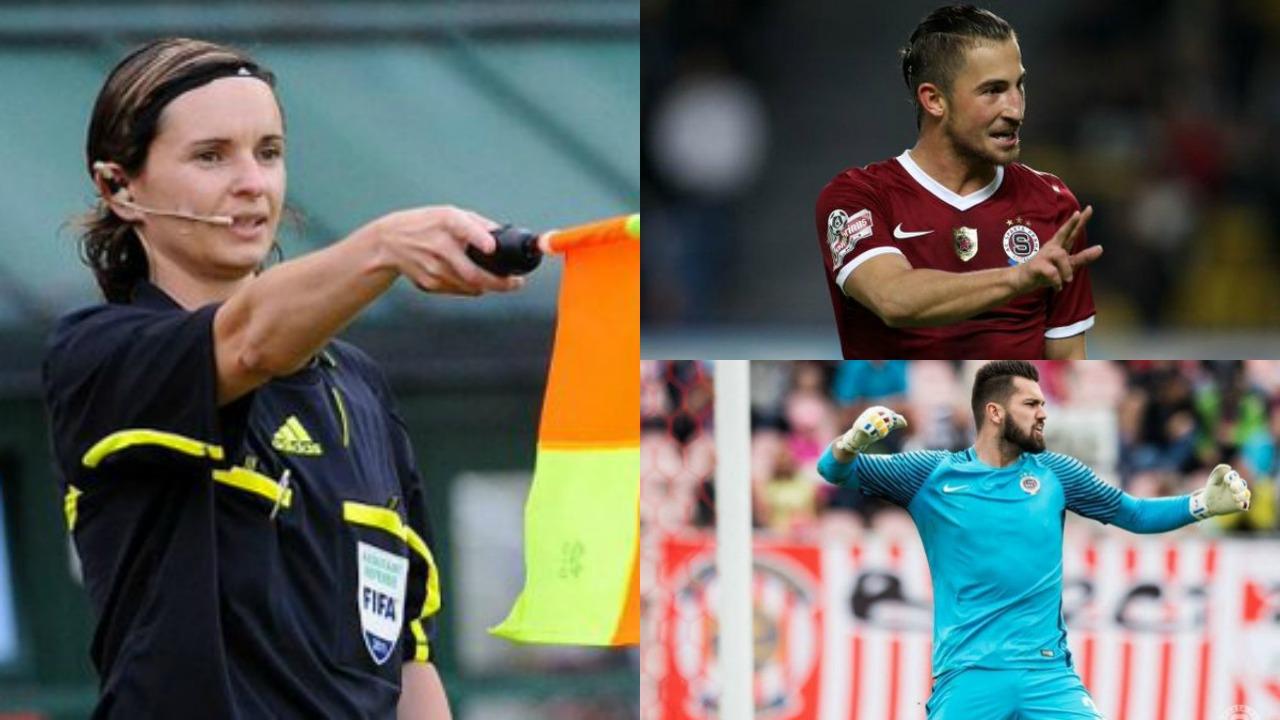2016 has not been the best year for sport. From doping to corruption allegations, negative headlines have often overshadowed the impressive feats achieved at this year’s big sporting events. In addition, this year an old age issue within sport, especially football, has once again reared its ugly head.
In the past month alone, three football players have been punished for derogatory comments towards female match officials. These incidents have reminded us that sexism in football is still alive and kicking, and that even though we’re supposedly 16 years into the 21st century, attitudes within football suggest otherwise.
The first sexist incident occurred earlier this month, and involved two Sparta Prague players, goalkeeper Tomas Koubek and injured midfielder Lukas Vacha. They were angered by the assistant referee’s failure to call an opposition player offside as he scored a stoppage time equaliser. The female assistant referee in question, Lucie Ratajova, was subject to sexist abuse, with Koubek stating that ‘women belong at the stove’ and ‘should not officiate men’s football’ and Vacha tweeting a photo of Ratajova along with the phrase ‘to the stove.’
The second incident took place within English football. Brentford’s Alan McCormack used abusive language towards a female match official during a match against Cardiff last April. An independent commission has now found that he committed a breach of the FA rules, resulting in a five-match ban and a £6,000 fine.
Both cases reveal an underlying and inherent streak of sexism that still runs throughout football. It can be seen across all levels and all roles in the sport, from the boardroom to the pitch to the dressing room to the press box. It cannot be denied that sexism in football is still a problem.
The most obvious case of sexism in football is on the pitch. Women’s teams receive less funding and support, and their training facilities are often wholly inadequate. This may be less of a problem at grass-root level, but when this is still occurring in the higher echelons of the women’s game there is obviously a fundamental problem. A case in point is the complicated pay dispute in which the USA’s women’s football team is currently embroiled. In March of this year, five players on the women’s team filed a federal complaint, accusing U.S. Soccer of wage discrimination. Their complaint was that they earned as little as 40 percent of what players on the United States men’s national team earned, despite being a lot more successful with three World Cup titles and four Olympic gold medals to their name. They also claim that they brought in nearly $20 million more in revenue for U.S. Soccer than the men’s team last year, blowing the argument that men’s football should earn more as it brings in more out of the water. This disagreement is yet to be resolved, but the players on the women’s team have done well to highlight the sexism that is still occurring on the pitch.
However, sexism is prominent off the pitch as well. The sexist comments made by the Sparta Prague and Brentford players show that there is still a strong level of disrespect among male players towards female match officials. The same kind of disrespect has also been directed at female backroom staff. The infamous disagreement between the then Chelsea manager Jose Mourinho and the club’s physio Eva Carneiro has been well-documented, and sexist undertones ran throughout the dispute. Mourinho claimed that Carneiro didn’t ‘understand the game,’ suggesting that he had a complete disregard for her professionalism and knowledge of football. This contempt for a female’s knowledge of football, despite them being a qualified professional, is also common among fans. I will always remember sitting amongst fellow Arsenal fans in the Emirates and hearing a tirade of sexist abuse directed at Swansea’s female physio in front of us, who was simply carrying out the job she was more than qualified to do.
The problem of sexism in football journalism has also been raised recently. Jacqui Oatley has commented on the online abuse and death threats she received whilst doing her job as a football commentator, and Gemma Clarke described her five years working as a football journalist as ‘so steadily and fiercely degrading, they very nearly destroyed me.’ Both women have mentioned the intimidating, male-dominated atmosphere surrounding press boxes in stadiums around the country, which could very well put women off from entering the world of football journalism.
And here is where the crux of the matter is. The problem of sexism in football is a self-perpetuating one. As long as an intimidating, sexist atmosphere remains around the footballing world, women will not want to enter it. Girls and women will refrain from playing football, officiating football, or even simply working at a football club due to the fear of being on the receiving end of sexist abuse. However, in order to eradicate the sexism running through football, more women need to get involved in it. As female players, officials and backroom staff are normalised in the footballing world, the respect and encouragement which is very much needed at the moment will naturally develop. There are numerous ways to get more women involved in football, some more difficult than others. Changing the fundamental attitude that football is solely a men’s game will take time, but greater investment in women’s grass-roots football and increased opportunities for women to partake in football related courses are already helping with this. Nonetheless, more needs to be done to drag football into the modern world.
Nancy Gillen
Photo Credit: The 18

